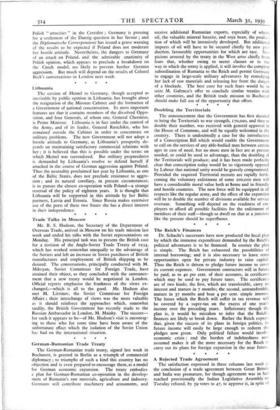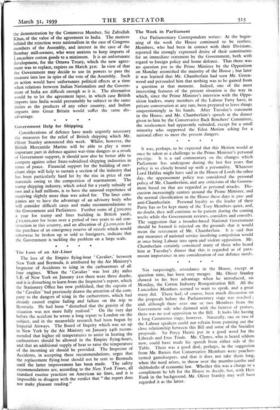A Rejected Trade Agreement The satisfaction expressed in these columns
last week a: the conclusion of a trade agreement between Great Britain and India was premature, for though agreement was in fact reached provisionally the Indian Legislative Assembly on Tuesday refused, by 59 votes to 47, to approve it, in spite of the demonstration by the Commerce Member, Sir Zafrullah Khan, of the value of the agreement to India. The motives behind the rejection were nationalism in the case of Congress members of the Assembly, and interest in the case of the Bombay mill-owners, who were anxious to keep imports of Lancashire cotton goods to a minimum. It is an unfortunate development, for the Ottawa Treaty, which the new agree- ment was to replace, expires on March 31st. In view of that the Government may decide to use its powers to pass the measure into law in spite of the vote of the Assembly. Such an action would have unfortunate political effects at a time when relations between Indian Nationalists and the Govern- ment of India are difficult enough as it is. The alternative would be to let the agreement lapse, in which case British imports into India would presumably be subject to the same duties as the products of any other country, and Indian imports into Great Britain would suffer the same dis- advantage.



































































 Previous page
Previous page